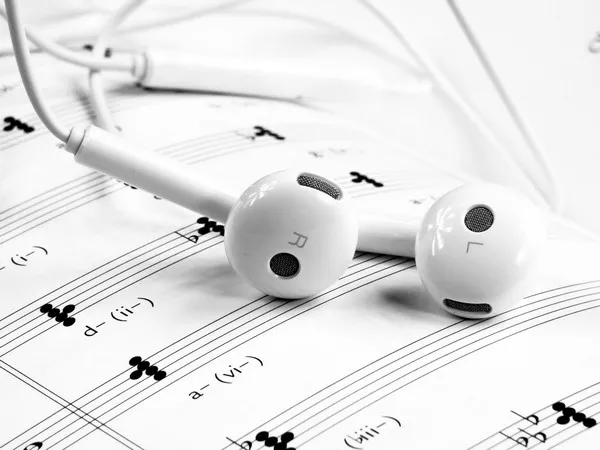In a world characterized by diverse traditions, languages, and customs, music serves as a unifying force that transcends barriers and brings people together across cultures. The melodic symphony of various musical genres has an extraordinary ability to foster connections, promote understanding, and celebrate the rich tapestry of global diversity. From traditional folk tunes to modern compositions, music has the remarkable capacity to bridge cultural divides and create a shared sense of harmony among communities worldwide.
Historical Significance of Music in Cultural Exchange
Throughout history, music has played a pivotal role in facilitating cultural exchange and interaction among different societies. Ancient civilizations used music as a means of communication, storytelling, and rituals, allowing traditions to be passed down through generations. As civilizations encountered each other through trade routes and exploration, musical influences intermingled, leading to the exchange of musical instruments, techniques, and styles. This exchange laid the foundation for a global musical heritage, showcasing how music brings cultures together by transcending geographical boundaries.
Cross-Cultural Collaboration and Fusion
The beauty of music lies in its ability to evolve and adapt, leading to cross-cultural collaborations that blend diverse musical elements. Artists from different cultural backgrounds often collaborate to create innovative compositions that fuse traditional sounds with contemporary styles. These collaborations not only result in unique musical pieces but also serve as a testament to the harmonious integration of cultures. Through fusion genres like world music, artists merge instruments, rhythms, and vocal traditions, creating a captivating blend that resonates with audiences worldwide, vividly exemplifying how music brings cultures together by fostering creative connections.
Celebrating Diversity through Festivals and Performances
Music festivals and performances offer a vibrant platform for celebrating cultural diversity. These events bring together artists from various backgrounds to showcase their heritage through music, dance, and storytelling. Attendees immerse themselves in a kaleidoscope of sounds, experiencing the richness of different cultures in a single setting. From the lively beats of African drums to the intricate melodies of Asian string instruments, these gatherings epitomize how music brings cultures together by providing a space for mutual appreciation and celebration of diversity.
Music as a Tool for Social Change and Unity
Beyond its artistic expression, music has been a catalyst for social change and unity across the globe. In times of unrest or social upheaval, musicians often use their craft as a means to convey messages of peace, solidarity, and social justice. Iconic songs like “Imagine” by John Lennon or “We Are the World” by USA for Africa resonated globally, uniting people from diverse backgrounds under a shared vision for a better world. These musical anthems serve as reminders of the unifying power of music, demonstrating its ability to transcend differences and unite humanity in pursuit of common goals.
Educational Impact and Cultural Understanding
Music serves as an invaluable educational tool that fosters cultural understanding and appreciation among individuals. Schools and educational institutions worldwide incorporate diverse musical traditions into their curriculum, exposing students to different cultural expressions. Learning about various musical styles and their cultural significance not only broadens students’ perspectives but also nurtures empathy and respect for other cultures. Through music education, students develop a deeper understanding of how music brings cultures together by recognizing the uniqueness and beauty of each musical tradition.
Technological Advancements and Global Connectivity
The digital era and technological advancements have revolutionized the accessibility of music, facilitating unprecedented global connectivity. Platforms like streaming services and social media enable people from different corners of the world to discover and share diverse musical experiences effortlessly. This interconnectedness allows individuals to explore music beyond their cultural boundaries, fostering an appreciation for different genres and styles. Moreover, online collaborations among musicians from distinct cultural backgrounds have become more prevalent, showcasing the potential of technology in uniting cultures through music.
Healing and Therapeutic Power of Music
Beyond its role in cultural exchange, music possesses healing and therapeutic qualities that transcend language and cultural barriers. Across cultures, music therapy has been utilized to alleviate stress, promote emotional well-being, and aid in healing processes. The universal emotional resonance of music allows individuals to connect on a profound level, offering comfort and solace during challenging times. Whether through communal chanting, soothing melodies, or rhythmic drumming, music’s therapeutic effects emphasize its role in bringing cultures together by nurturing a shared emotional experience.
Preservation of Cultural Heritage through Music
In many societies, music serves as a vessel for preserving and safeguarding cultural heritage. Traditional songs, dances, and musical rituals are passed down from one generation to another, serving as a link to a community’s history and identity. Efforts to preserve indigenous musical traditions not only honor cultural roots but also foster intergenerational connections. By recognizing the significance of music in preserving cultural heritage, communities worldwide emphasize the importance of safeguarding their traditions, contributing to the collective wealth of global cultural diversity.
Conclusion
Music’s unparalleled ability to transcend boundaries and unify people from diverse cultural backgrounds is a testament to its status as a universal language of harmony. From ancient times to the modern era, music has been a catalyst for cultural exchange, collaboration, and understanding. Its capacity to evoke emotions, foster connections, and celebrate diversity makes it an indispensable tool for bringing cultures together. As we continue to embrace the myriad sounds and rhythms that echo the world’s cultural mosaic, music remains a powerful force that unites humanity in a shared symphony of diversity and harmony.























